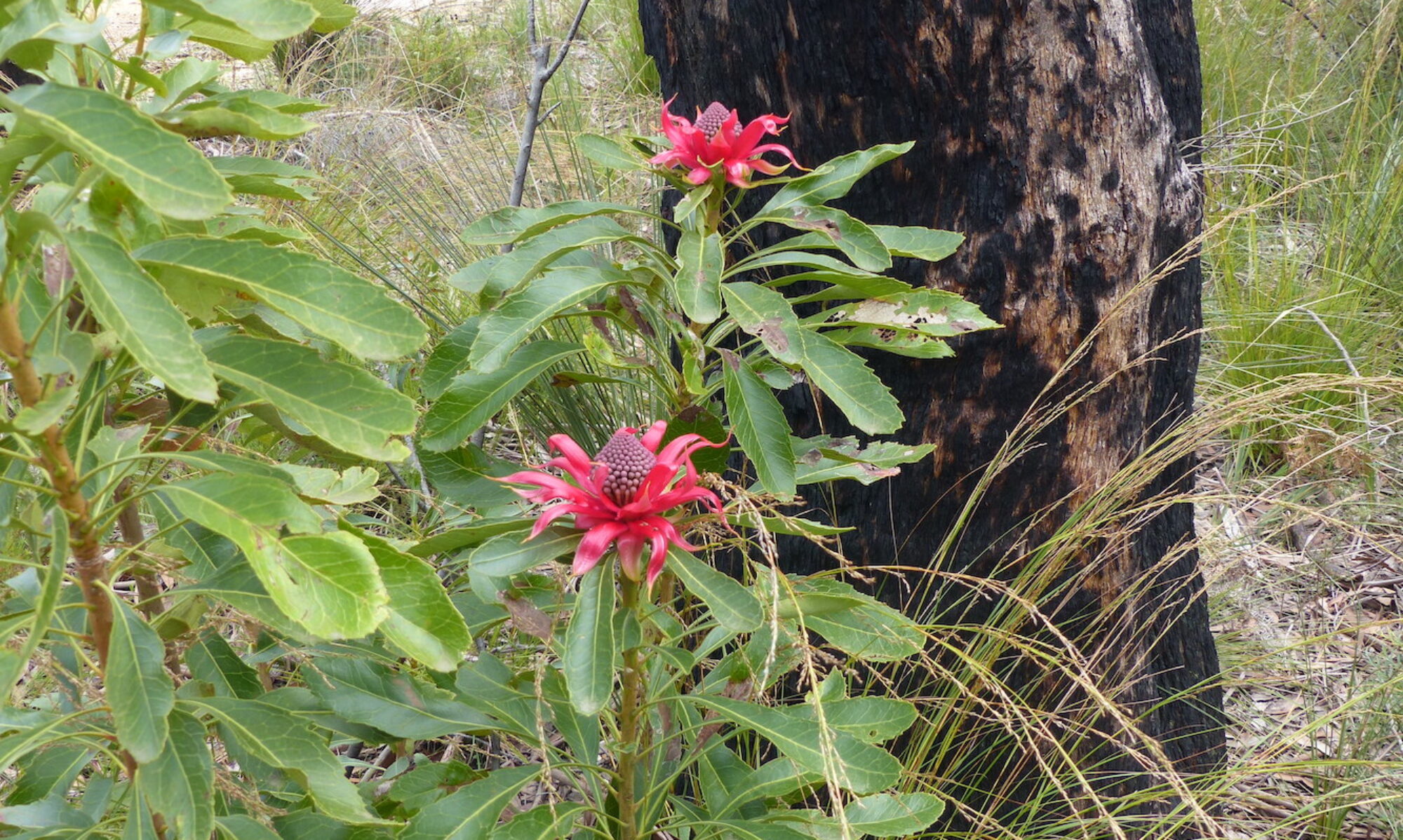Accidents come naturally to children, especially in the bush. Denis was sitting quietly on Whinny one morning when Peter the dog began barking. Whether this was at the horse or not I can’t recall. Peter didn’t respond to Guy’s commands, so he uncoiled his whip from his shoulder and cracked it across the dog. Peter shot off like the proverbial Bondi tram, while Whinny reared up and Denis came tumbling over her rump, hitting the ground with some force. That was another word I learned on the Cundle Plains – concussion. I was allowed into the bedroom sometime in the afternoon when he was feeling a little better and found him a little different and with some loss of memory. He could not remember the two rabbits we had taken from the traps that morning and a couple of other incidents. He continued to improve and was back to his usual self by the next morning.

One afternoon I had brought the cows into for milking on Whinny, whom I tied up to a length of barbed wire fencing while I closed the gate to the cow yard. The wire rattled as I went to undo it and the usually quiet mare shied, rearing back and breaking the wire which lashed me behind the left thigh, lifting me off the ground to land on the rough, dry ground, causing a cut of several inches in length. The yards were often a quagmire, churned up by the cow tracks in the mud, but on this instance it was bone dry and caused some minor bruising. The scar remains after all those years.
There was a five-acre paddock of lucerne where Guy would allow the cows – Jerseys and Guernseys, or crosses of the two breeds – to feed for a limited time when appropriate; feeding too long on such rich pasture could cause the cows to suffer bloat, which required fast, special treatment to save them from death in severe cases.
Other than lucerne the farm produced sacheline, maize and turnips. A vegetable garden provided the house with plenty of vegetables for the table and the chooks laid rich eggs and provided fresh meat at times. Occasionally we would get a feed of fish from the little wharf and rabbits were common fare. One day the silky oak tree beside the house was alive with the noisy leatherheads (elsewhere called friarbirds) and Dad and Guy sat down and shot some with .22 rifle using shorts (low-powered cartridges). The soup made from the leatherheads was considered a delicacy and provided a cheap meal in those hard times. They were different times.
I was about six-years-of-age when and I began to ride Whinny and take an interest in the milking operations and join Guy in the early morning when he lit the fire at the dairy for the sterilising of all things associated with milking. I would also get the cows in and help with the milking. When the milking machines were used the cows had to be hand ‘stripped’ to relieve them of their last amount. Always barefooted, one day I had the misfortune of having a cow step on my toe and a day or two later had the nail completely removed by the bottom edge of a milk can while shifting it.
Guy taught me many things about farm life. He explained how to recognise when a cow was pregnant, suggesting that I don’t pass on this information to my mother, insinuating that it was not proper for women to know such things. Ev, of course, was a progressive lady and always fed me information, as required, as to the doings of the birds and bees. Day-old calves were evaluated by Guy checking their little teats, considering the mother’s milk output and general body shape. Those that did not pass the test were ‘put down’ with one quick tap to the forehead with a hammer. It was then skinned and the skin salted. The skins, though of little value, were later sold for what they would bring in. They were different days and nothing was wasted and what little money could be raised was.
Whinny had a rope bridle plaited by Guy and he and I always rode bareback. The rope bridle was yet another sign of the economics of the day. People improvised or made what they could rather than buy it; even to buy the leather to make a bridle would have been considered a waste of money. Guy did have one possession that was considered special and would have cost a considerable amount of money. It was an expensive looking American saddle, which, I think, he won in his roughriding days. It was kept in the house and I never saw Guy use it. It was very special to him.
